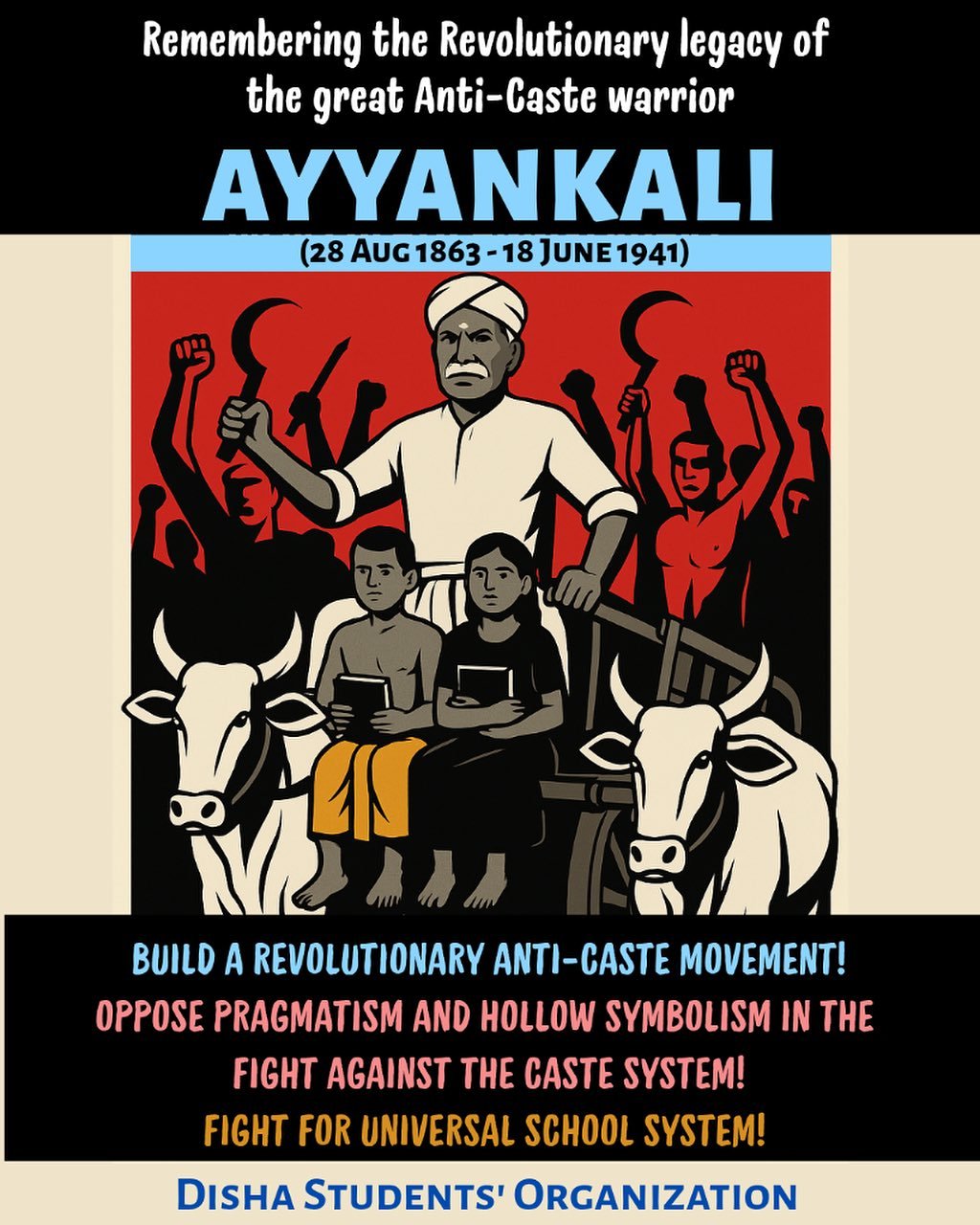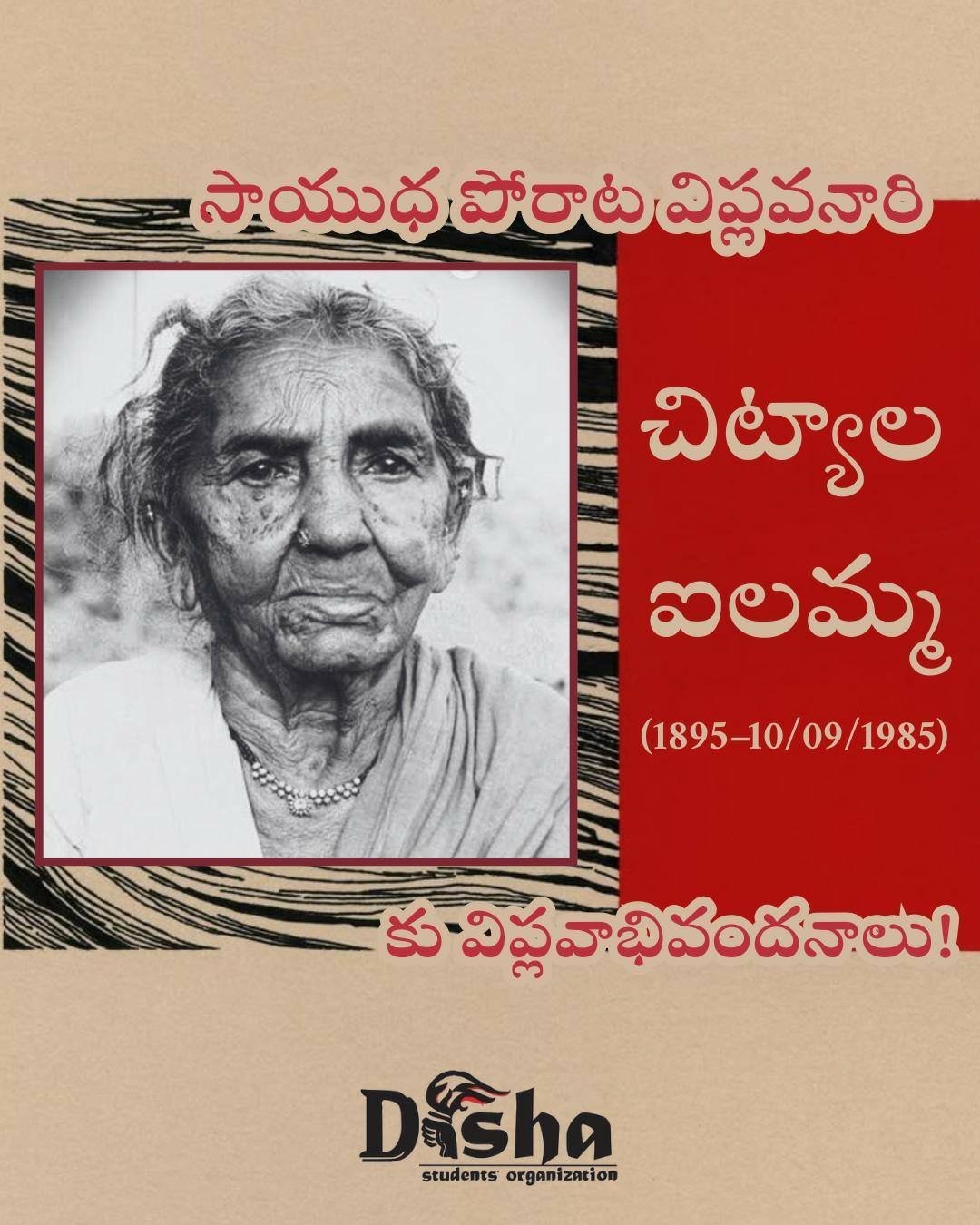DISHA STUDENTS’ ORGANIZATION REMEMBERS THE LEGACY OF THE GREAT ANTI- CASTE WARRIOR AYYANKALI ON HIS DEATH ANNIVERSARY
18th June marks the death anniversary of the anti- caste warrior Ayyankali who worked for the upliftment of the Dalits and lower castes. Ayyankali fought radically and organised the masses to challenge the Brahmanical notions of caste which led to Dalits becoming second hand citizens. Ayyankali understood and believed in the revolutionary potential of the masses and organised them to gain important rights.
Ayyankali was born on 28th August 1863 in Veganoor, Thiruvananthapuram. His family belonged to Pulayar community which was considered untouchable. Pulayar community was denied access to public roads, education, temples, and basic human rights.
In 1893 Ayyankali rode an ox-cart on a public road forbidden for the Dalits. The upper caste Nairs (who considered themselves the lords of lands) were outraged by Ayyankali’s challenge to their authority and privilege, and attacked Ayyankali and his cart due to which a fight broke out between Nairs and Dalits (especially Pulayar). This conflict came to be known as the “Chaliyar Riots”. Consequently, the British state in Madras presidency was forced to allow the Pulayar community the basic human right of walking on public roads.
One of the most important achievements of Ayyankali was the struggle for Dalit women’s right to cover their upper bodies. Dalit women were forced to leave their breasts uncovered as an indication of lower status and slavery. The revolt began in 1895 when Ayyankali’s wife Chellamma and his sister-in-law Kuttiyamma wore upper-body clothes and walked along a public road and they were attacked by the upper caste mob especially Nairs. This sparked a series of clashes and after the struggle of two decades in 1916 all women were allowed to wear upper clothes regardless of their caste.
Ayyankli also played a great role in improving the education system in Kerala which was highly unequal. It was dominated by Brahmins and upper castes and the Dalit castes were denied the right to education. Ayyankali established the first school for the Dalits in his village in 1904 despite facing opposition and violence from the upper castes. He also provided financial and moral support to other Dalit schools in the region. We must remember that even for such reform work, Ayyankali didn’t remain at the mercy of the British state but mobilized resources from the masses.
Ayyankali died on June 18, 1941. His struggle resulted in many changes that improved and changed the lives of Dalits and working masses. At a time when the fascist regime in our country is nurturing and encouraging the Brahmanical elements and values in the society, resulting in increasing anti-Dalit atrocities, the need to follow the path shown by Ayyankali becomes more pertinent than ever.
Ayyankali didn’t wait for the “benevolent” state to act in favour of the Dalits. Instead, he radically organized the masses, directly confronted the Brahmanical authority and forced the state to act in the favour of the Dalits. Walking on the path of Ayyankali would mean going beyond the limits of hollow symbolism and pragmatism that has ensnared the Anti-Caste movement today.
We take inspiration from the radical nature of his struggle and continue the fight for an equal society.



